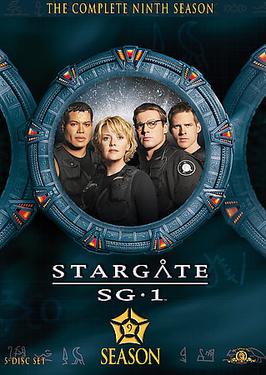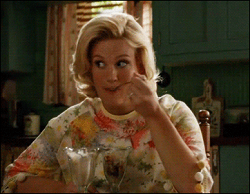International broadcasts
| Country/region | Channel |
|---|---|
| B92 | |
| RTVE | |
| SVT | |
| Discovery Channel | |
| Body Story | |
|---|---|
| Genre | Documentary |
| Narrated by | Terry McDonald |
| Original language | English |
| No. of series | 2 |
| No. of episodes | 12 |
| Production | |
| Running time | about 45 minutes |
| Production company | Wall to Wall |
| Original release | |
| Network | Channel 4, Discovery Channel |
| Release | 1998 – 2001 |
Body Story is a mini-series produced by Wall to Wall and distributed by Channel 4 and Discovery Channel. The series aired in two seasons 1998 and 2001. Combining real-life acting and computer-generated imagery, it shows the processes going on inside the human body in our daily life as well as facing dramatic experiences, in a docufictional style.
The series covers body processes such as basic instincts, learning, immune system, puberty, pregnancy, immune system and recovering.
45 year old man has heart attack
Bicycle courier slash singer gets a visit from Influenza B
Young girl breaks arm falling off a bicycle
Sleazy man gets drunk
Marion Swift struggles with the various stages of pregnancy with the help of her husband, Ian.
Life reaches its end for an elderly Typewriter enthusiast. The episode is replayed as the final episode of season 2.
The episode follows neighborhood children Darren and Natalie, as they grow through the stages of puberty. The first scene shows Darren and Natalie as 8 year old kids frolicking in their backyard. The time is fast forwarded five years, to when both children are 13 years old. Scenes shot in a third person perspective follow Darren and Natalie through the changes of puberty, including: pimples, the first period, the growth of sperm, and the growth spurts that both children go through. All of the changes during puberty result in sexual attraction towards each other, and culminates during a Romeo and Juliet play in which Darren and Natalie share a kiss.
How a baby's mind develops after being born.
How people gain and lose weight.
A woman is stung by a wasp and suffers an allergic reaction.
A man suffers from salmonella.
A couple experience a car crash.
The first season won a silver medal for Television Film in the 1999 BMA Awards. [1]
| Country/region | Channel |
|---|---|
| B92 | |
| RTVE | |
| SVT | |
| Discovery Channel | |

Adolescence is a transitional stage of physical and psychological development that generally occurs during the period from puberty to adulthood. Adolescence is usually associated with the teenage years, but its physical, psychological or cultural expressions may begin earlier or end later. Puberty typically begins during preadolescence, particularly in females. Physical growth and cognitive development can extend past the teens. Age provides only a rough marker of adolescence, and scholars have not agreed upon a precise definition. Some definitions start as early as 10 and end as late as 30. The World Health Organization definition officially designates an adolescent as someone between the ages of 10 and 19.
Development of the human body is the process of growth to maturity. The process begins with fertilization, where an egg released from the ovary of a female is penetrated by a sperm cell from a male. The resulting zygote develops through mitosis and cell differentiation, and the resulting embryo then implants in the uterus, where the embryo continues development through a fetal stage until birth. Further growth and development continues after birth, and includes both physical and psychological development that is influenced by genetic, hormonal, environmental and other factors. This continues throughout life: through childhood and adolescence into adulthood.
Menarche is the first menstrual cycle, or first menstrual bleeding, in female humans. From both social and medical perspectives, it is often considered the central event of female puberty, as it signals the possibility of fertility.

Nighty Night is a BBC black comedy television sitcom starring Julia Davis. It was first broadcast on 6 January 2004 on BBC Three.
"Miri" is the eighth episode of the first season of the American science fiction television series Star Trek. Written by Adrian Spies and directed by Vincent McEveety, it first aired on October 27, 1966.
"The Deadly Years" is the twelfth episode of the second season of the American science fiction television series Star Trek. Written by David P. Harmon and directed by Joseph Pevney, it was first broadcast December 8, 1967.
A flashback is an interjected scene that takes the narrative back in time from the current point in the story. Flashbacks are often used to recount events that happened before the story's primary sequence of events to fill in crucial backstory. In the opposite direction, a flashforward reveals events that will occur in the future. Both flashback and flashforward are used to cohere a story, develop a character, or add structure to the narrative. In literature, internal analepsis is a flashback to an earlier point in the narrative; external analepsis is a flashback to a time before the narrative started.

Male pregnancy is the incubation of one or more embryos or fetuses by organisms of the male sex in some species. Most species that reproduce by sexual reproduction are heterogamous—females producing larger gametes (ova) and males producing smaller gametes (sperm). In nearly all animal species, offspring are carried by the female until birth, but in fish of the family Syngnathidae, males perform that function.

Soultaker is a 1990 American fantasy horror film written by Vivian Schilling and directed by Michael Rissi. It stars Joe Estevez in the title role, alongside Vivian Schilling, Gregg Thomsen, Chuck Williams, Robert Z'Dar, and David "Shark" Fralick. The film follows a group of young adults who try to flee from the titular "Soultaker" when their souls are ejected from their bodies after a car accident. Inspired by discussions with Action International Pictures producer Eric Parkinson, the script was based on a real-life car accident which Schilling was involved in.

The ninth season of Stargate SG-1, an American-Canadian television series, began airing on July 15, 2005, on SCI FI. The ninth season concluded on March 10, 2006, after 20 episodes on the same channel. The series was originally developed by Brad Wright and Jonathan Glassner, and Brad Wright, Robert C. Cooper, Joseph Mallozzi and Paul Mullie served as executive producers. The season arc centers on the new threat of the Ori, a race who Daniel Jackson and Vala Mal Doran unleash in an unknown galaxy, and who are threatening to prepare for a crusade into the Milky Way galaxy to convert the beings to their religion called Origin.

Childrens Hospital is an American dark comedy television and web series that parodies the medical drama genre, created by and starring actor/comedian Rob Corddry. The series began on the web on TheWB.com with ten episodes, roughly five minutes in length, all of which premiered on December 8, 2008. Adult Swim picked up the rights to the show in 2009 and began airing episodes in 2010.
All About Us: Living and Growing is a British Sex and Relationships Education series for 5–13 year olds published by Channel 4 on VHS and DVD. The series is often referred to by its short name of Living and Growing. It covers the differences between a boy and a girl, Puberty, how babies are made and how babies are born. The programmes were put into units 1, 2, 3 and 4.

Spirited is an Australian television supernatural comedy-drama series made for subscription television channel W that aired for two seasons, 2010 and 2011.
Puberty is the process of physical changes through which a child's body matures into an adult body capable of sexual reproduction. It is initiated by hormonal signals from the brain to the gonads: the ovaries in a female, the testicles in a male. In response to the signals, the gonads produce hormones that stimulate libido and the growth, function, and transformation of the brain, bones, muscle, blood, skin, hair, breasts, and sex organs. Physical growth—height and weight—accelerates in the first half of puberty and is completed when an adult body has been developed. Before puberty, the external sex organs, known as primary sexual characteristics, are sex characteristics that distinguish males and females. Puberty leads to sexual dimorphism through the development of the secondary sex characteristics, which further distinguish the sexes.

Amelia Frances Shepherd, M.D., F.A.C.S. is a fictional character on the ABC American television Grey's Anatomy medical drama and the spin-off series Private Practice, portrayed by Caterina Scorsone. In her debut appearance in season 3, Amelia visited her former sister-in-law, Addison Montgomery, and became a partner at the Oceanside Wellness Group. In July 2010, it was reported that she was promoted to series regular for season 4, after appearing in the final five episodes of season 3. She remained in the series until the final episode.

"Tea Leaves" is the third episode of the fifth season of the American television drama series Mad Men and overall the 55th episode of the series. It was written by series creator and executive producer Matthew Weiner and writer Erin Levy, and directed by series leading man Jon Hamm. It originally aired on the AMC channel in the United States on April 1, 2012.
Back in Time for... is a British factual entertainment television series produced by Wall to Wall and broadcast on BBC Two from 17 March 2015 to 23 June 2022. Each series takes one "typical" family or multiple individuals relating to the topic and immerses them in life of past decades.

Gullah Gullah Island is an American musical children's television series aired on the Nick Jr. block from October 24, 1994, to March 7, 2000. The show was hosted by Ron Daise – the former vice president for Creative Education at Brookgreen Gardens in Murrells Inlet, South Carolina until 2023 – and his wife Natalie Daise, both of whom also served as cultural advisors, and were inspired by the Gullah culture of Ron Daise's home of St. Helena Island, South Carolina, part of the Sea Islands.
"My Old Kentucky Home" is the third episode of the third season of the American television drama series Mad Men. It was written by Dahvi Waller and Matthew Weiner and directed by Jennifer Getzinger. The episode originally aired on the AMC channel in the United States on August 30, 2009.